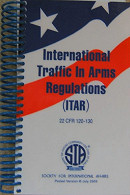 The latest batch of civil penalties released by the Treasury Department’s Office of Foreign Assets Control (“OFAC”) has a real eye-opener. Alabama-based Compass Bank, a subsidiary of the Spanish global banking company BBVA, agreed to pay $607,500 to settle charges that it processed three wires “on behalf of one of its clients related to the petroleum or petrochemical industries in Sudan.” That’s right, you didn’t misread that. The predicate violations for the $607,500 fine were three (3) wire transfers, not thirty, not three hundred, but three.
The latest batch of civil penalties released by the Treasury Department’s Office of Foreign Assets Control (“OFAC”) has a real eye-opener. Alabama-based Compass Bank, a subsidiary of the Spanish global banking company BBVA, agreed to pay $607,500 to settle charges that it processed three wires “on behalf of one of its clients related to the petroleum or petrochemical industries in Sudan.” That’s right, you didn’t misread that. The predicate violations for the $607,500 fine were three (3) wire transfers, not thirty, not three hundred, but three.
Consistent with OFAC’s “keep-em-guessing” policy, OFAC provides as little information as possible about the violation, which was not voluntarily disclosed by Compass, making it completely impossible to determine why Compass was hit with such a high fine. The maximum possible fine here was $750,000, and for some reason OFAC shaved very little from the maximum. This is even more puzzling given OFAC’s statement that the violation was “a non-egregious case.” Moreover, the description of the wire as related to one clients activities in Sudan suggest the possibility that Sudan might not have even been mentioned in the wire. An article (subscription required) in Law 360 quoted a bank spokesman as saying that the transfer was not “intentional.”
Your guess is as good as mine as to the reason for the harsh treatment of Compass. Perhaps somebody from Compass used a naughty word and irritated one of the regulators. My theory is that OFAC was giving Compass the Admiral John Byng treatment, which Voltaire described when he said “il est bon de tuer de temps en temps un amiral pour encourager les autres.” (“Every now and then it’s a good idea to kill an admiral in order to encourage the others.”)

 Posted by
Posted by  Category:
Category: 

 Last Friday, the State Department’s Directorate of Defense Trade Controls (“DDTC”) issued a
Last Friday, the State Department’s Directorate of Defense Trade Controls (“DDTC”) issued a 
 Tacoma-based
Tacoma-based 


